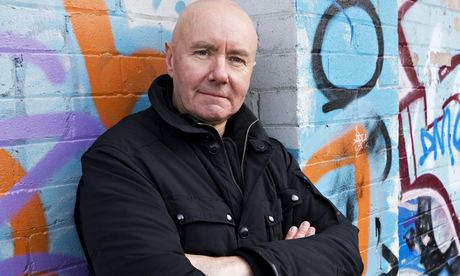
In a newspaper interview this week, independent publisher Adrian Searle cast the the referendum debate in terms of publishing opportunities for Scottish writers: "What the majority want the majority gets," he said. "I've seen it again and again over the last three years. Writers having their work rejected by London publishers because it's Scottish in theme or content, which isn't the London publishers' fault. There is just less of a market."
As the man behind Freight Books, a three-year-old imprint specialising in Scottish books, Searle has been busy righting the balance, publishing a mix of the old and new, the familiar and less familiar.
Chairing the Society of Authors in Scotland, my role is also is to promote, support and champion writers working from Scotland, and as a novelist I have a great and supportive relationship with both my southern publishers.
My main forensic crime series is undeniably Scottish and features a forensic scientist, Dr Rhona MacLeod, who travels about Scotland using her expertise. In the latest novel, due out in August, much of her time is spent in Orkney. I don't use Orkney dialect, but the locations are authentically named, and described. I used to live and teach there.
The first book in the series, Driftnet, was published by Edinburgh-based Luath Press. Although they swiftly sold it into numerous European countries, and Russia, they did not succeed in getting it into bookshops south of the border. It seems at times that Europe is much more open-minded regarding "Scottish" books than London is.
My second and most recent series is set in Cannes in the south of France and features Patrick de Courvoisier, whose father was French, mother Scottish, while he is an Englishman. I love reading books set in Italy, or France, or Switzerland, or Norway, and relish their place names and character names, even though I could never hope to pronounce them properly. They are not a barrier to the story, rather they are the colour and essence of it.
It is not easy to have a book published. Any published author will testify to that. There can be many reasons for a publisher to reject a book, not least that it simply isn't good enough. Many years ago, I attended a class at Edinburgh University entitled Characters in Action. One evening a fellow student revealed he had read a manuscript for a publisher which he thought was fantastic, but, he declared, it would never be published, because people wouldn't understand it, as it was written in Edinburgh patois. That book was Trainspotting and I'm glad to say it did get published and became an international success despite being very Scottish.
More recently, I was contacted by the Bookseller to comment, on behalf of the Society of Authors in Scotland, on difficulties experienced by authors in Scotland in finding big London publishers. It was strange timing as we had recently discussed this topic at a committee meeting. The general feeling was that the predominant reason for rejecting work was that, even when publishers thought it excellent, it was deemed to be "too Scottish" and therefore less likely to have an audience.
Publishers will of course rightly point to the success of Scottish crime writing both in the UK and internationally. The Bloody Scotland international crime festival, of which I am a co-founder, was created to promote "our other national export". At its launch in 2012 in Stirling, Ian Rankin – one of its biggest stars – said: "Scandinavia doesn't have better writers. It has better PR." It seems that being "too Scandinavian" is not a barrier to entering the London market.
But does the existence of a few famous Scottish writers such as Ian Rankin, Denise Mina, Val McDermid and Alexander McCall Smith really mean English readers now have enough? I was interested in a quote in the Bookseller article, which said "publishers have defended their record, saying that Scottish writers have done 'disproportionately well' in recent years".
What does "disproportionately well" mean? That we produced too many good books and that should be curtailed? That we exceeded our population percentage? Surely a good book is a good book. We read to be entertained and informed, excited and enthralled. Good storytellers do that wherever they come from, and whatever the setting, in the language of the place.
So, if you are already publishing two Scottish writers, is that a valid reason to turn down a book you love?

